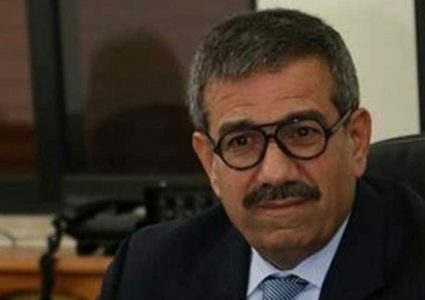For the second time, the United States has managed to control the declared confrontational rhythm between Iran and the colony. Last April, they exchanged shelling, and an Israeli attack was described by Ben Gvir, the Minister of Internal Security in Netanyahu’s government, as a “mockery.”
On October 1, 2024, Iran bombed Israeli sites, limited to military bases, and did not touch strategic, economic, or civilian sites. And here is the colony responding to Iran at dawn on Saturday, October 26, 2024, by bombing similar military sites in three provinces: Tehran, Khuzestan, and Ilam only. It avoided: 1- Bombing the Iranian nuclear reactor, 2- Oil production and refinery sites. This was done by a direct American decision, with the aim of not escalating and keeping the clashes within an acceptable and controlled ceiling for both parties.
The Israeli bombing was followed by an official statement saying: “We have completed the response to the Iranian attack,” and a senior American official responded by saying: “This should be the end of the exchange of direct strikes between Israel and Iran” and “There should be no escalation, and if Iran chooses to respond again, we are fully prepared to defend Israel again.”
This clarifies the extent of direct and indirect American participation and support for the colony, represented by the transfer of squadrons of F-16 aircraft from Europe to the region, and the provision of advanced "Thaad" air defense systems to protect Israeli airspace from missile and electronic drone strikes.
The United States provided political and diplomatic cover for the colony attack, and a warning of future attacks, according to statements by an American official who said:
"If Iran attacks Israel again, there will be consequences, and we have informed Iran of that directly and indirectly."
White House National Security Council spokesman Sean Savitt said in an official statement: “We understand that Israel is carrying out targeted strikes against military sites in Iran, as an exercise in self-defense, in response to the Iranian missile attack on Israel on October 1.”
Regardless of the size of the strike and the losses that occurred, from the point of view of both parties, the accompanying political data seem clear and evident, aiming to prevent escalation and keep the clashes between them within the framework of what is acceptable, controllable, and tolerable, as long as they do not reach the level of harming civilians, and do not target strategic sites and targets by both parties, and by both the Iranian and Israeli parties.
The United States has no interest in expanding the conflict, but rather in controlling it so that it does not get out of hand, and is keen not to get involved in a direct war against Iran, which would require direct Russian intervention in favor of Tehran, as the United States is doing in Ukraine against Russia, and thus the balance is lost and may lead to a clash between the American and Russian giants.
Russia is working to restore its international position, after its defeat in the Cold War in 1990, and is working with China to end American exclusivity in the international political scene. Therefore, Washington avoids clashing and leaving the state of Russian attrition alone in Ukraine. The United States relies directly on the colony to protect its interests in the region while ensuring a state of normalization and ending the state of war between the colony and Arab parties, even if the October 7 operation and its repercussions “messed up” the cards and the American scenario. Therefore, it has worked and is still working to control the rhythm between Iran and the colony so that the conflict does not explode, to the point of not being able to control it.







Share your opinion
Rhythmic collision